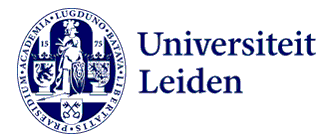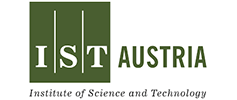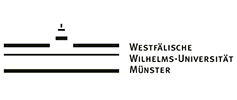Independence of the Indonesian Constitutional Court in Norms and Practices
DOI:
https://doi.org/10.31078/consrev314Keywords:
Constitutional Court, Independence, Council of EthicsAbstract
Article 24 (1) of the 1945 Constitution States after the third amendment, “the judicial power shall be independent in administering justice so as to uphold the law and equality.” The Indonesian Constitutional Court is one of the performers of the independent judicial power who plays a significant role in the enforcement of the constitution and the principle of the state based on the law by its authority and obligations as determined by the 1945 Constitution. This paper intends to study the Indonesian Constitutional Court to find out whether the Constitutional Court in exercising its constitutional authority can be independent. Also, this article will examine not just institutional independence but also judges independence to understand current issues related to the role of ethics and conduct of judges. The independence of the Indonesian Constitutional Court supported by the 1945 Constitution after the amendments from 1999 until 2002, and further stipulated in Law. However, it can be said that this institution has ups and downs of public trust due to corruption cases conducted by constitutional justices. Also, in several political instances showed efforts of political institutions to limit the authority of the Constitutional Court. In its experiences, the Constitutional Court succeeded in convincing the parties through its decisions and strengthening institutional independence against the influence that tried to destabilize its institutions. The Council of Ethics of Constitutional Judges that maintains the values and behavior of judges also continuously works and efficient enough in overseeing the ethics and conduct of judges. The decision of the Ethics Council may also be accepted as a proportional decision.References
Bagir Manan, “Independence of the Judiciary, Indonesian Experience,” [http://www.supremecourt.gov.pk/ijc/Articles/2/10.pdf].
Fritz Siregar, “Indonesian Constitutional Politics”, Int’l J. Const. L. Blog, Oct.
20, 2013, available at: [http://www.iconnectblog.com/2013/10/indonesianconstitutional-politics].
Jimly Asshiddiqie, “Creating a Constitutional Court In a New Democracy”, paper presented in Australia, March 2009.
Luthfi Widagdo Eddyono, “Kemerdekaan Kekuasaan Kehakiman”, [https://www.academia.edu/3412699/Kemerdekaan_Kekuasaan_Kehakiman].
Mahkamah Konstitusi Republik Indonesia, Harmoni Sosial dan Budaya Demokrasi yang Berkeadilan, Laporan Tahunan mahkamah Konstitusi 2016, Kepaniteraan dan Sekretariat Jenderal MKRI, Jakarta, 2017.
Moh. Mahfud MD, “The Role of the Constitutional Court in the Development of Democracy in Indonesia”, the paper is presented at the World Conference on Constitutional Justice, Cape Town, January 23-4, 2009.
Stefanus Hendrianto, “The Indonesian Constitutional Court at a Tipping Point,” Int’l J. Const. L. Blog, October 3, 2013, available at [http://www.iconnectblog.com/2013/10/the-indonesian-constitutional-court-at-a-tipping-point].
Stefanus Hendrianto, “The “Ethics” of the Indonesian Constitutional Court: How Low Can It Go?”, Int’l J. Const. L. Blog, May 25, 2016, at [http://www.iconnectblog.com/2016/05/the-ethics-of-the-indonesian-constitutional-courthow-low-can-it-go/].
Wasis Susetio, “Guarding Constitution of Indonesia through the Court,” [http://www.ialsnet.org/meetings/constit/papers/SusetioWasis%28Indonesia%29.pdf].
Yustina Trihoni Nalesti Dewi, W. Riawan Tjandra, and Grant R. Niemann,“Independence of Judicial Power as a Foundation of Human Rights Judicial Function in Indonesia,” International Journal of Social Science and Humanity, Vol. 6, No. 3, March 2016.
The Constitutional Court of Indonesia, Compilation UUD 1945 and Constitutional Court Law, The Office of the Registrar and the Secretariat General of the Constitutional Court of the Republic of Indonesia, Jakarta, 2015.
The Constitutional Court of Indonesia, Annual Report 2011: Upholding the Constitutional Democratic State, The Secretariat General and the Office of the Registrar of the Constitutional Court of the Republic of Indonesia, Jakarta, 2012, [http://www.mahkamahkonstitusi.go.id/public/content/infoumum/laporantahunan/pdf/laporan%20tahunan%202011%20english.pdf]
[http://www.unodc.org/pdf/crime/corruption/judicial_group/Bangalore_principles.pdf].
[http://www.mahkamahkonstitusi.go.id/index.php?page=web.ProfilMK&id=7&menu=].
[https://en.tempo.co/read/news/2017/01/27/055840547/Patrialis-Akbar-Corruption-Case-Brings-Disaster-for-Public].
Indonesian Constitutional Court Decision
Decision Number 005/PUU-IV/2006
Decision Number 48/PUU-IX/2011
Decision Number 49/PUU-IX/2011
Decision Number 34/PUU-X/2012
Decision Number 7/PUU-XI/2013
Decision Number 1-2/PUU-XII/2014
Fritz Siregar, “Indonesian Constitutional Politics”, Int’l J. Const. L. Blog, Oct.
20, 2013, available at: [http://www.iconnectblog.com/2013/10/indonesianconstitutional-politics].
Jimly Asshiddiqie, “Creating a Constitutional Court In a New Democracy”, paper presented in Australia, March 2009.
Luthfi Widagdo Eddyono, “Kemerdekaan Kekuasaan Kehakiman”, [https://www.academia.edu/3412699/Kemerdekaan_Kekuasaan_Kehakiman].
Mahkamah Konstitusi Republik Indonesia, Harmoni Sosial dan Budaya Demokrasi yang Berkeadilan, Laporan Tahunan mahkamah Konstitusi 2016, Kepaniteraan dan Sekretariat Jenderal MKRI, Jakarta, 2017.
Moh. Mahfud MD, “The Role of the Constitutional Court in the Development of Democracy in Indonesia”, the paper is presented at the World Conference on Constitutional Justice, Cape Town, January 23-4, 2009.
Stefanus Hendrianto, “The Indonesian Constitutional Court at a Tipping Point,” Int’l J. Const. L. Blog, October 3, 2013, available at [http://www.iconnectblog.com/2013/10/the-indonesian-constitutional-court-at-a-tipping-point].
Stefanus Hendrianto, “The “Ethics” of the Indonesian Constitutional Court: How Low Can It Go?”, Int’l J. Const. L. Blog, May 25, 2016, at [http://www.iconnectblog.com/2016/05/the-ethics-of-the-indonesian-constitutional-courthow-low-can-it-go/].
Wasis Susetio, “Guarding Constitution of Indonesia through the Court,” [http://www.ialsnet.org/meetings/constit/papers/SusetioWasis%28Indonesia%29.pdf].
Yustina Trihoni Nalesti Dewi, W. Riawan Tjandra, and Grant R. Niemann,“Independence of Judicial Power as a Foundation of Human Rights Judicial Function in Indonesia,” International Journal of Social Science and Humanity, Vol. 6, No. 3, March 2016.
The Constitutional Court of Indonesia, Compilation UUD 1945 and Constitutional Court Law, The Office of the Registrar and the Secretariat General of the Constitutional Court of the Republic of Indonesia, Jakarta, 2015.
The Constitutional Court of Indonesia, Annual Report 2011: Upholding the Constitutional Democratic State, The Secretariat General and the Office of the Registrar of the Constitutional Court of the Republic of Indonesia, Jakarta, 2012, [http://www.mahkamahkonstitusi.go.id/public/content/infoumum/laporantahunan/pdf/laporan%20tahunan%202011%20english.pdf]
[http://www.unodc.org/pdf/crime/corruption/judicial_group/Bangalore_principles.pdf].
[http://www.mahkamahkonstitusi.go.id/index.php?page=web.ProfilMK&id=7&menu=].
[https://en.tempo.co/read/news/2017/01/27/055840547/Patrialis-Akbar-Corruption-Case-Brings-Disaster-for-Public].
Indonesian Constitutional Court Decision
Decision Number 005/PUU-IV/2006
Decision Number 48/PUU-IX/2011
Decision Number 49/PUU-IX/2011
Decision Number 34/PUU-X/2012
Decision Number 7/PUU-XI/2013
Decision Number 1-2/PUU-XII/2014
Downloads
Published
2017-08-02
How to Cite
Eddyono, L. W. (2017). Independence of the Indonesian Constitutional Court in Norms and Practices. Constitutional Review, 3(1), 71–97. https://doi.org/10.31078/consrev314
Issue
Section
Articles
































































